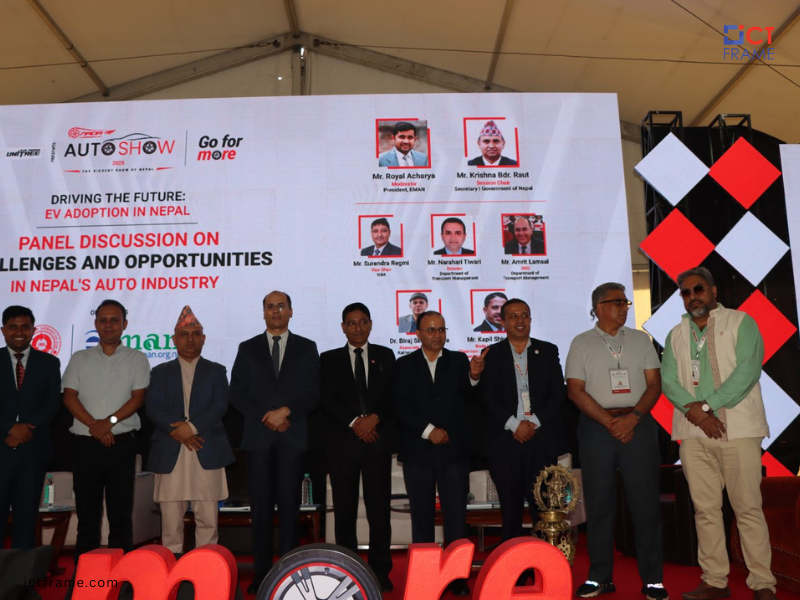Industry Secretary Urges EV Manufacturing in Nepal, Addresses Legal Hurdles for Local Production
EV manufacturing Nepal
21st August 2025, Kathmandu
In a significant call to action for the private sector, Krishna Bahadur Raut, Secretary at the Ministry of Industry, Commerce, and Supplies, has urged businesses to take the lead in manufacturing electric vehicles (EVs) within Nepal.
EV manufacturing Nepal
Speaking at the “Driving the Future: EV Adoption in Nepal” panel discussion, a key event at the NADA Auto Show, Secretary Raut emphasized that local EV production is a crucial strategy for boosting the nation’s economy and reducing its staggering trade deficit.
Secretary Raut’s appeal comes at a time when Nepal’s trade imbalance is a major concern. He highlighted that while the country’s imports have soared to over NPR 1.8 trillion, exports lag far behind at a mere NPR 300 billion, resulting in a colossal trade deficit of NPR 1.527 trillion. He pointed out that petroleum products and vehicles are among the top imports, making the shift to domestic EV production a powerful solution.
“If we can manufacture EVs in Nepal, it will not only reduce our reliance on imported petroleum products but also significantly lower our trade deficit,” Secretary Raut stated. “This initiative would generate much-needed employment opportunities and minimize the outflow of foreign currency, creating a ripple effect of economic benefits across the country.”
Addressing the Legal and Bureaucratic Hurdles
While the vision of a “Made in Nepal” EV industry is compelling, Secretary Raut was forthright about the existing challenges. He acknowledged that EV dealers and aspiring manufacturers currently face a complex web of legal and bureaucratic hurdles, from cumbersome registration processes to vehicle testing bottlenecks. These obstacles have historically hindered large-scale investment and innovation in the sector.
However, Raut provided a glimmer of hope, revealing that the government is actively working on a new law specifically for EVs. This new legal framework aims to streamline procedures, simplify regulations, and create a more conducive environment for domestic production.
He mentioned that some pioneering entrepreneurs have already begun assembling EVs locally, with others seeking permission to establish facilities in Special Economic Zones (SEZs). These early movers serve as a testament to the private sector’s readiness to invest, provided the government clears the path.
The Role of Public-Private Partnership (PPP)
To effectively overcome these challenges, Secretary Raut detailed the government’s plan to adopt a Public-Private Partnership (PPP) model. This collaborative approach will involve not only the central government but also provincial and local governments, fostering a unified effort to support the EV industry.
The PPP model is seen as a strategic way to pool resources, share risks, and leverage the expertise of both the public and private sectors. By working together, they can address critical infrastructure gaps, such as the limited number of charging stations and a standardized testing process, which are essential for a thriving EV ecosystem.
The government can provide policy support, land, and incentives, while the private sector brings in the necessary capital, technology, and operational efficiency.
This collaborative framework is expected to accelerate the development of a comprehensive EV infrastructure, making it easier for manufacturers to set up operations and for consumers to adopt electric vehicles. By involving provincial and local governments, the government can ensure that the necessary support and infrastructure are available throughout the country, not just in major urban centers.
The call from Secretary Raut is a clear signal that the government is serious about promoting a sustainable and self-reliant transportation sector.
With a new law in the pipeline and a commitment to the PPP model, Nepal appears to be on the cusp of a major shift towards a greener, more economically stable future, with locally-made electric vehicles leading the way. The successful implementation of these plans will be crucial in turning this ambitious vision into a reality.
For more: EV manufacturing Nepal







